All Stories
-
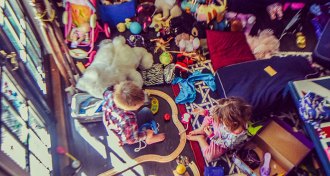 Health & Medicine
Health & MedicineAn abundance of toys can curb kids’ creativity and focus
Too many toys may lead to more shallow play for toddlers, a new study suggests.
-
 Health & Medicine
Health & MedicineFracking linked to low birth weight in Pennsylvania babies
Babies born to moms living within one kilometer of a hydraulic fracturing site were more likely to be born underweight, researchers say.
-
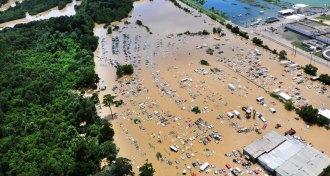 Earth
EarthFederal maps underestimate flood risk for tens of millions of people, scientists warn
New flood maps suggest that the U.S. government underestimates how many people live in floodplains.
-
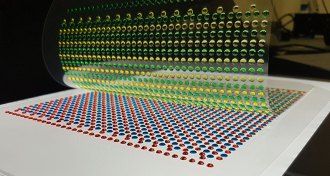 Tech
TechElectric eels provide a zap of inspiration for a new kind of power source
Battery-like devices inspired by electric eels could someday power wearable and implantable tech or soft robots.
-
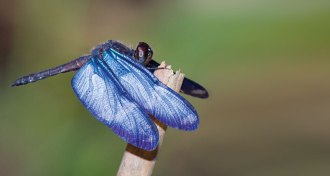 Science & Society
Science & SocietyThese are the most-read Science News stories of 2017
From Cassini and eclipses to ladybugs and dolphins, Science News online readers had a wide variety of favorite stories on our website.
-
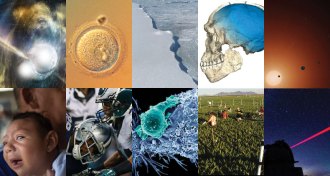 Science & Society
Science & Society2017 delivered humility, and proved our potential
Acting Editor in Chief Elizabeth Quill reflects on some of the top scientific stories of 2017.
-
 Science & Society
Science & SocietyColliding neutron stars, gene editing, human origins and more top stories of 2017
A gravitational wave discovery is the year's biggest science story — again.
-
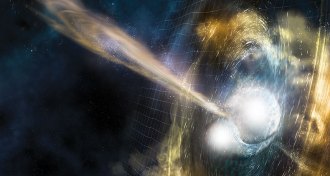 Astronomy
AstronomyThis year’s neutron star collision unlocks cosmic mysteries
A rare and long-awaited astronomical event united thousands of astronomers in a frenzy of observations.
-
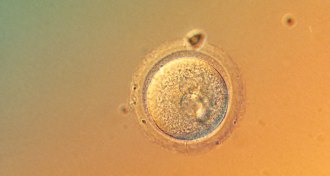 Genetics
GeneticsCRISPR gene editing moved into new territory in 2017
Scientists edited viable human embryos with CRISPR/Cas9 this year.
-
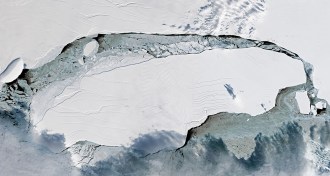 Climate
ClimateThe Larsen C ice shelf break has sparked groundbreaking research
The hubbub over the iceberg that broke off Larsen C may have died down, but scientists are just getting warmed up to study the aftermath.
-
 Humans
HumansThe story of humans’ origins got a revision in 2017
Human evolution may have involved the gradual assembly of scattered skeletal traits, fossils of Homo naledi and other species show.
By Bruce Bower -
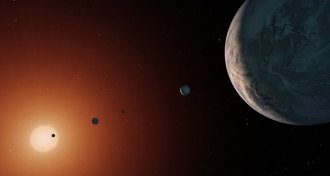 Astronomy
AstronomySeven Earth-sized planets entered the spotlight this year
The discovery of seven Earth-sized planets orbiting a single cool star fuels a debate over what counts as good news in the search for life outside the solar system.